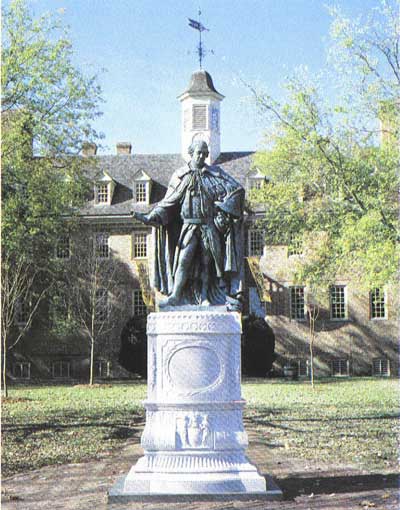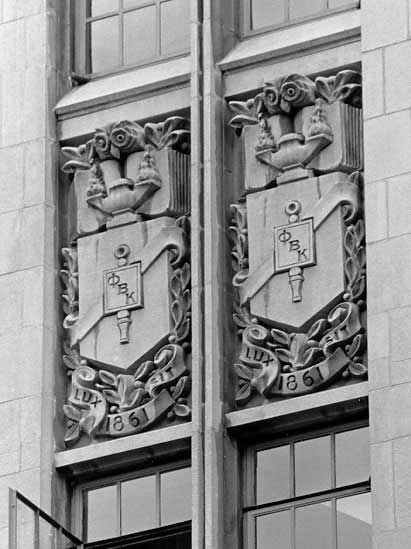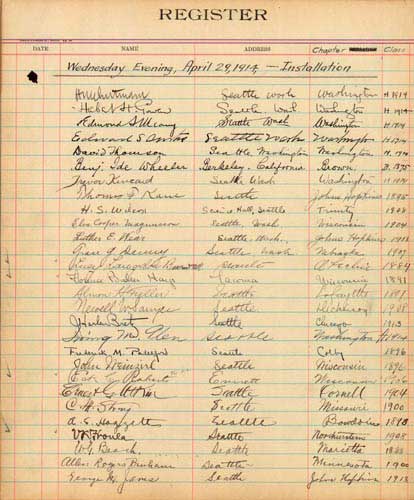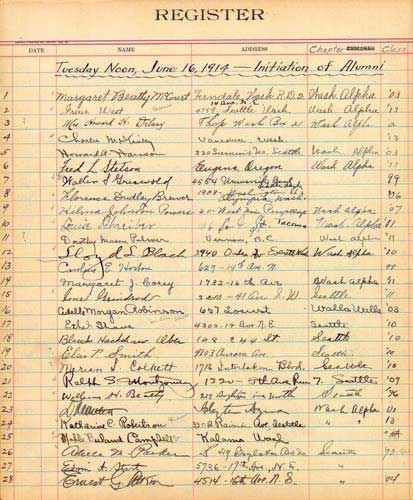A Brief History of Phi Beta Kappa

Phi Beta Kappa's small gold key has come to represent a true mark of distinction. The pointing finger and three stars signify the ambition of the young scholars who founded the organization and the three distinguishing principles of their Society - friendship, morality, and learning. The letters SP on the back of the key stand for Societas Philosophiae.
Phi Beta Kappa is the oldest and the most distinguished of all collegiate honorary societies. For more than two hundred years, election to Phi Beta Kappa has been a recognition of intellectual capacities well employed, especially in the acquisition of an education in the liberal arts and sciences. The objectives of humane learning encouraged by Phi Beta Kappa include intellectual honesty and tolerance, a broad range of intellectual interests, and understanding — not simply knowledge gained in pursuit of a career, although that is important also.
Phi Beta Kappa was founded on December 5, 1776, at the College of William and Mary, in Williamsburg, Virginia. Regular meetings were held at which chief attention was given to literary exercises, especially to composition and debating. Shortly thereafter charters were granted to Harvard, voted on December 4, 1779, and to Yale, voted five days later. Thus were established the Alpha of Connecticut at Yale on November 13, 1780, and the Alpha of Massachusetts at Harvard on September 5, 1781. These two chapters largely determined the permanent character of Phi Beta Kappa and shaped its policy in the establishment of new chapters, which are admitted only after careful scrutiny of the quality of the petitioning institutions. All chapters are required to maintain similar high standards for the election of members.
At the present time, over 270 colleges and universities in the country have active chapters. There are about 400,000 living members elected from among the top scholars of their respective institutions. Originally Phi Beta Kappa was a society of congenial spirits, similar in its basis of membership to a present-day fraternity and in the character of its meetings to a debating or literary club. As time passed, it tended more and more to become an honor society. Although under-graduate activity continues in some chapters, most chapters now meet only two or three times a year for election and initiation of members and for a reception or dinner, followed often by public exercises with a scholarly address and occasionally a poem or a concert.
A relatively early development was the admission of women. The chapter at the University of Vermont, finding in 1875 that two women had met the scholastic requirements, admitted them. The following year four women were elected by the Gamma chapter of Connecticut at Wesleyan. Although this step, taken when Phi Beta Kappa was just attaining its centenary, was regarded in some quarters as revolutionary, it aroused no formal protest; and a few years later, when a general constitution and by-laws were adopted, the right of women to membership was accepted without question.
The movement to secure a chapter of Phi Beta Kappa at the University of Washington was begun in 1907, but it was not until 1914 that the Alpha Chapter (the first chapter in the State of Washington) was established at our university. The Beta Chapter is at Whitman College (1920), the Gamma Chapter at Washington State University (1929), and the Delta Chapter at the University of Puget Sound (1986).
At the present time election to Washington Alpha is based primarily on high scholarship, with an added requirement of a sufficient number of courses outside of the field of specialization. Most of those elected are enrolled in the College of Arts and Sciences, but unlike some chapters, Washington Alpha elects members from those graduating from any college or school of the university if the program of study is judged to be sufficiently broad. In the past few years approximately five percent of the class of graduating seniors have been elected to membership.
The membership of the Washington Alpha Chapter comprises those elected as undergraduates by this chapter, and those who were elected by other chapters and are now faculty or staff members at the University of Washington.
In addition to the chapters at the colleges and universities, there are about fifty alumni associations that meet regularly and sponsor lectures, awards, and scholarships. In our region the Puget Sound Association of Phi Beta Kappa, composed of local residents elected by other institutions as well as the University of Washington, maintains an active program. Through one of these alumni groups, it is possible for a member of Phi Beta Kappa to associate with many distinguished people with excellent academic backgrounds.
This brief description is based on "Phi Beta Kappa: A Handbook for New Members," published by the Phi Beta Kappa Society and "A Brief History of Phi Beta Kappa" published by the Washington Alpha Chapter.

Phi Beta Kappa was founded at the College of William and Mary, above, in Williamsburg, Virginia, in December 1776.

Phi Beta Kappa Emblem on Gerberding Hall,University of Washington

Original UW Alpha Chapter Charter, 1914

Above and below are pages of the the first Phi Beta Kappa register used at the University of Washington. At the initiation ceremony, new members each sign their names, a ritual still followed today.

